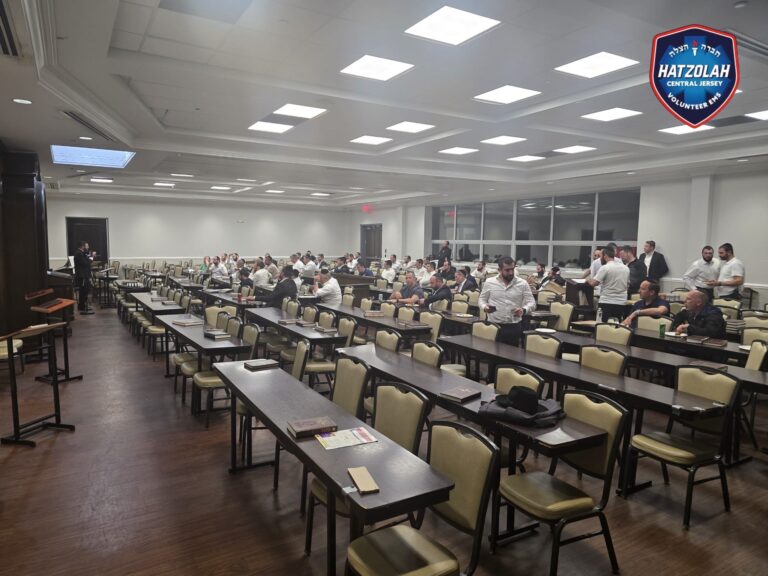 By Rabbi Yair Hoffman for the Five Towns Jewish Times
By Rabbi Yair Hoffman for the Five Towns Jewish Times
It is called “Operation Bugdrop” and it is causing entire countries to quake in fear. Essentially, this computer malware is virtually undetectable and can change any computer into an eavesdropping device. It records anything within earshot of the computer’s built in mike. It was used to bring down the electric grid of the Ukraine. The malware was probably invented by Russia, but it was discovered by CyberX, the company founded by IDF cyber-security experts Omer Schneider and Nir Giller.
The fact that electronic eavesdropping is in the news, brings up the general question of whether or not eavesdropping in any form is halachically permitted. Two men are conversing about how a yeshiva is about to underwrite a construction initiative having nothing to do with education for profit-making purposes. Can one listen in? Two women are discussing zoning issues involving an indoor swimming pool. May one eavesdrop?
The Talmud and the Poskim in Shulchan Aruch discuss a concept called Hezek Ri’ya – damage caused by seeing. Yet neither the Talmud nor the Shulchan Aruch discuss a concept of damage of listening or eavesdropping. This may, at first glance, indicate to us that there is no inherent prohibition involved. Yet, we do find a debate about the issue in the writings of the Rishonim and acharonim.
THE TWO VIEWS IN THE MEFORSHIM
The Meiri (Beis HaBechira BB 2a) explains the issues of building a wall as resolving the concwpt of damage done by seeing into another’s property. He states that there is no further issue of damage of eavesdropping by virtue of the thinness of the wall since people are generally careful in such matters and do not speak where it can be overheard.
Rav Eliyahu Mizrachi (1450-1526) in his responsum (#8) rules that there is no halachic issue of eavesdropping damage – since there is no mention of it in the Talmud.
According to the Meiri, when there is no reason for the person to think to be careful, such as with electronic eavesdropping, or by leaving his or her email open on the company computer – there would be a prohibition of eavesdropping.
REBBEINU GERSHOM
There is also the issue of the Cherem Rabbeinu Gershom (960-1040) not to read a letter of another person without him knowing. The Sefer Teshuvas Maharam (#1022) and the Be’er HaGolah (YD 334) cite the ban placed upon anyone who reads the letter of another person without that person’s knowledge. It also states that if the recipient threw it out in the garbage, then one would be permitted to read it.
A pertinent question about this issue is as follows:
Does the Cherem Rabbeinu Gershom include eavesdropping on a conversation of others? Believe it or not there is a deep debate about this very issue among contemporary Poskim.
But even according to the view that it is not included in the ban, the underlying reasons of the ban still apply.
Rav Chaim Palagi in his Chokakei Lev explains the reasons for Rabbeinu Gershom’s reason for the ban. One of his reasons is that it is a negation of v’ahavta l’rayacha kamocha – the Mitzvah of loving one’s neighbor as oneself.
There is also the possible reason advanced by the Toras Chaim (347) that it is considered borrowing without permission (sho’el shelo midaas). However, not everyone agrees with this concept because the issue under discussion lacks physical form – it is information. That being the case, some would argue that it is not technical borrowing.
If we rule that the reason behind the ban is that it is an abnegation of the Torah Mitzvah of v’ahavta l’rayacha kamocha, the underlying reasons for Rabbeinu Gershom’s ban still apply, so granted that he is not in violation of the Cherem – he is still in violation of the negation fo a Torah Mitzvah.
The Peleh Yoetz as well as Rav Palagi both explain that since one who reveals the secret obtained in a letter is in violation of a Lo Sa’aseh to reveal the secrets of others – “Lo Seilech Rachil B’Amecha – do not walk as a talebearer among your nation” there would be little difference as to how exactly he had obtained the information.
POSTCARDS, FAXES MEDICAL AND SCHOOL RECORDS
As an interesting side thought, the Shaivet HaKahasi (Vol. III #282) rules that the ban does apply to both postcards as well as faxes.
What else might be included in this prohibition? It seems that any information that a person would prefer to keep to himself or herself would also be included. Report card grades, regent marks, health and legal records, and even credit reports.
What about forwarding someone’ email that was received and marked personal and confidential? Also, often there is a previous email that was attached in a chain or bundle to an item that you are forwarding now. May one read the bundle?
Many Poskim are of the opinion that an email is, in fact, included in Rabbeinu Gershom’s ban. Regardless, although one may be curious, one should not look into the previous threads of an email that one has received if they were forwarded along with the current email that one legitimately received.
The author can be reached at [email protected]










